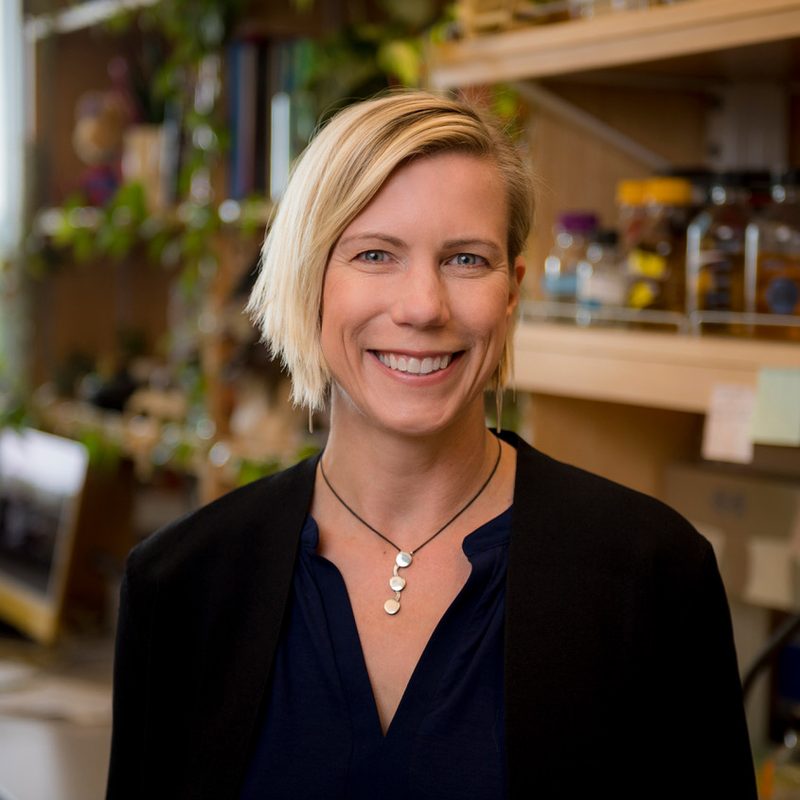
A leading cell biologist known for using creative, cutting-edge methods, Samara Reck-Peterson ’93 is widely praised for research that may lead to new therapeutics for patients with Parkinson’s Disease. Reck-Peterson, a biology major at Carleton, earned a PhD from Yale University, did postdoctoral studies at the University of California San Francisco, and joined the Harvard Medical School faculty in 2007 to investigate the mechanisms responsible for subcellular transport. There she discovered how Lis1, a protein required for brain development, controls the activity of a subcellular motor called dynein. She was one of the first researchers to use a technique dubbed “DNA origami,” a type of nanofabrication to build macromolecular tools to further investigate cellular highways, called microtubules.
In 2015 Reck-Peterson moved to the University of California, San Diego, where she was appointed as a professor in the Department of Cellular and Molecular Medicine and in the Department of Cell and Developmental Biology. In 2016 she published another groundbreaking study on the phenomenon of “organelle hitchhiking.” In 2020 her team revealed how a protein that plays a major role in Parkinson’s Disease creates roadblocks for subcellular transport. This finding had major implications for the design of therapeutics to treat Parkinson’s Disease.
Reck-Peterson is also a Howard Hughes Medical Institute Investigator. She is the recipient of numerous accolades, including the National Institutes of Health New Innovator Award, and is known as a dedicated mentor and educator. She lives in San Diego.